12 Nights / 13 Days
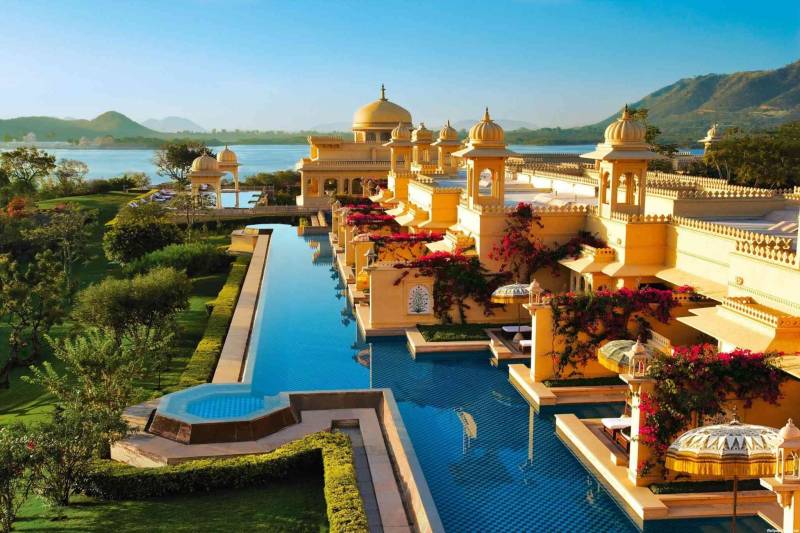
Highlights
Cycle rickshaw ride in Delhi.
Witness beautiful frescoes in Mandawa.
Visit to the sand dunes of Thar Desert in Jaisalmer.
Visit the magnificent Mehrangarh Fort in Jodhpur.
Exclusive boat cruise on the majestic water of Lake Pichola in Udaipur.
Visit Amber Fort in Jaipur on Elephant back.
Visit to the glorious Taj Mahal in Agra.
Arrive At New Delhi’s Indira Gandhi International Airport.
delhi – the Capital of India – the City Consists of Two Parts – Old & New Delhi. Old Delhi Was the Capital of Muslim India Between 17th and 19th Century and Has Many Mosques, Monuments and Forts. New Delhi, the Imperial City Was Created By the British as the Capital of India. in 1911, Edwin Lutyens, the Most Renowned English Architect of the Day, Was Chosen to Design New Delhi Which Flaunts a Surprising Number of Impressive Monuments Related to Its Conquests By the Mughals, Turks, Persians and Ultimately the British.
meet & Assist: a Representative Meets You At the Arrival Hall of Airport, Holding a Signage and Escort You to Your Hotel in Air-conditioned Vehicle.
check-in At Hotel and Stay for 2 Nights.
overnight At the Hotel in Delhi.
Morning Combined Sightseeing Tour of Old + New Delhi.
old Delhi Which Was the Capital of Muslim India Between 17th and 19th Century and Has Many Mosques, Monuments and Forts. Begin Your Day with An Exploration of Old Delhi – Visit the Jama Masjid, the Royal Mosque Built By the Mughal Emperor, Shah Jahan in 1656. It is One of the Largest and Most Beautiful Mosques in the World and is Constructed in Red Sandstone and White Marble. the Main Prayer Hall Has a Seating Capacity of More Than 20,000 Worshippers. in the Old City of Delhi, Walk Through the By-lanes of the Spice Market, the Wedding Street and the Jeweler’s Lane to Savor the 350 Years Old Culture Up-close. There Will Be Great Photo Opportunities Here.
enjoy a Cycle Rickshaw Ride Through the Narrow Lanes of Chandni Chowk, the Spine of Old Delhi. Jahanara Begum, the Daughter of Shah Jahan Designed this Commercial Place in 1648. Drive Past Red Fort, Built in Red Sand Stone By Shah Jahan in 1648, this Magnificent Monument is Laid Out Along the River Yamuna as An Irregular Octagon. Drive Through the Majestic Boulevards of New Delhi Designed By the Edwin Lutyens in 1920. Lutyens’ Delhi Includes the Grand Government Buildings and Parliament House.
the Rashtrapati Bhavan (presidential Palace) is Where the Viceroy Once Lived and Now is the Official Residence of the President of India. It is An Imposing Structure with 340 Rooms, Constructed High Up On Raisina Hill. View India Gate, a War Memorial Arch Built in Honor of 90,000 Indian Soldiers Who Lost Their Lives in World War.
continue to Humayun’s Tomb, the First Great Example of Mughal Architecture in India, It Developed to Become the Hallmark of the Mughal Dynasty. Culminate Your Tour At Qutab Minar, a Soaring Tower of Victory, 72.5meter High with Five Distinct Stories. the Construction of this Minaret Commenced in 1193 and Was Completed in 1368. Built On the Foundation of a Hindu Temple, Many Elements of the Construction Reflect Their Hindu and Jain Origins. Within the Complex, There are Myriad Monuments that Combine Both Islamic Calligraphy and Hindu Motifs.
return to Hotel After the Above Visits.
overnight At the Hotel in Delhi.
Arrive At New Delhi’s Indira Gandhi International Airport.
delhi – the Capital of India – the City Consists of Two Parts – Old & New Delhi. Old Delhi Was the Capital of Muslim India Between 17th and 19th Century and Has Many Mosques, Monuments and Forts. New Delhi, the Imperial City Was Created By the British as the Capital of India. in 1911, Edwin Lutyens, the Most Renowned English Architect of the Day, Was Chosen to Design New Delhi Which Flaunts a Surprising Number of Impressive Monuments Related to Its Conquests By the Mughals, Turks, Persians and Ultimately the British.
meet & Assist: a Representative Meets You At the Arrival Hall of Airport, Holding a Signage and Escort You to Your Hotel in Air-conditioned Vehicle.
check-in At Hotel and Stay for 2 Nights.
overnight At the Hotel in Delhi.
morning Combined Sightseeing Tour of Old + New Delhi.
old Delhi Which Was the Capital of Muslim India Between 17th and 19th Century and Has Many Mosques, Monuments and Forts. Begin Your Day with An Exploration of Old Delhi – Visit the Jama Masjid, the Royal Mosque Built By the Mughal Emperor, Shah Jahan in 1656. It is One of the Largest and Most Beautiful Mosques in the World and is Constructed in Red Sandstone and White Marble. the Main Prayer Hall Has a Seating Capacity of More Than 20,000 Worshippers. in the Old City of Delhi, Walk Through the By-lanes of the Spice Market, the Wedding Street and the Jeweler’s Lane to Savor the 350 Years Old Culture Up-close. There Will Be Great Photo Opportunities Here.
enjoy a Cycle Rickshaw Ride Through the Narrow Lanes of Chandni Chowk, the Spine of Old Delhi. Jahanara Begum, the Daughter of Shah Jahan Designed this Commercial Place in 1648. Drive Past Red Fort, Built in Red Sand Stone By Shah Jahan in 1648, this Magnificent Monument is Laid Out Along the River Yamuna as An Irregular Octagon. Drive Through the Majestic Boulevards of New Delhi Designed By the Edwin Lutyens in 1920. Lutyens’ Delhi Includes the Grand Government Buildings and Parliament House.
the Rashtrapati Bhavan (presidential Palace) is Where the Viceroy Once Lived and Now is the Official Residence of the President of India. It is An Imposing Structure with 340 Rooms, Constructed High Up On Raisina Hill. View India Gate, a War Memorial Arch Built in Honor of 90,000 Indian Soldiers Who Lost Their Lives in World War.
continue to Humayun’s Tomb, the First Great Example of Mughal Architecture in India, It Developed to Become the Hallmark of the Mughal Dynasty. Culminate Your Tour At Qutab Minar, a Soaring Tower of Victory, 72.5meter High with Five Distinct Stories. the Construction of this Minaret Commenced in 1193 and Was Completed in 1368. Built On the Foundation of a Hindu Temple, Many Elements of the Construction Reflect Their Hindu and Jain Origins. Within the Complex, There are Myriad Monuments that Combine Both Islamic Calligraphy and Hindu Motifs.
return to Hotel After the Above Visits.
overnight At the Hotel in Delhi.
breakfast At the Hotel.
this Morning Drive to Mandawa Covering a Distance of 230kms in Approx 5 Hours & 30 Minutes.
the Town of Mandawa Was Founded and Inhabited By Shekhawati Rajputs in the 18th Century and is Popularly Known as the Open Art Gallery of Rajasthan Due to Magnificent Murals and Frescoes from Mythology, Legendary Tales and Contemporary Lifestyle Which Adorn the Havelis (small Mansions) of this Town. Apart from the Havelis the Market Town of Mandawa is Renowned for the Mandawa Castle. a Large Number of Antiques and Paintings are also On Display in the Durbar Hall of the Castle. the Mandawa Castle is Now Converted Into a Heritage Hotel.
afternoon Arrive in Mandawa and Check-in At Your Hotel.
late Afternoon Explore the Beautiful Town of Mandawa. See the Hand Painted Havelis that are Some of the Splendid Examples Depicting the Regional Folklore. Walk and Maze Through the Streets, Bazaars and Observe Colorfully Dressed Local People and There Day to Day Activities.
return to Hotel.
overnight At the Hotel in Mandawa
This Morning Drive to Bikaner Covering a Distance of 160kms in Approx. 4 Hours.
bikaner Exists in Magnificent Isolation in the Northern Rajasthan Desert, a Fortified Town Founded By Bika, Son of the Rathore King Rao Jodha (who Built Jodhpur), in the Late 15th Century as a Stop On the Trading Route Between the Punjab and the Plains. It May Not have the Golden Perfection of Jaisalmer, But Its Fort Has Interiors Alive with Mirror-work, Gold Leaf and Stained Glass. also See the Sandstone Lalgarh Palace with Its fine Jaalis or Latticework Screens, Many fine Jain Havelis, Karni Mata or the Rat Temple – this May Not Be for Everyone – Whose Rodent Residents are Thought to Be the Reincarnations of Departed Souls And, Outside Town, a Camel Farm. Bikaner is Famous for Its Superior Camels – Dark Caramel Colour, with Luxuriant Eyelashes – and Hosts a Famous January Camel Fair.
on Arrival, Check in At Your Hotel.
late Afternoon Enjoy a Sightseeing Tour of Bikaner.
visit Junagarh Fort. with Its Sumptuously Decorated Interiors, the Fort Was Built in 1588 By Raja Rai Singh It is Unusual in the Sense that It Was One of the Few Major Forts of Rajasthan that Was Not Built On a Hilltop. Instead, It Was Built On the Desert Plains, Its Rugged Sandstone Bastions and Graceful Pavilions and Balconies are Silhouetted Against the Sky.
continue the Tour to the National Research Centre On Camel (formerly Known as the Camel Breeding Farm – Closed On Saturdays). the Centre Has Developed a Camel Museum, Which Attracts the Attention of Researchers and Tourists. Different Breeds of Camel are Produced and Preserved At the Centre.
return to Hotel.
overnight At the Hotel in Bikaner.
Arrive at New Delhi’s Indira Gandhi International airport.
Delhi – the capital of India – The city consists of two parts – Old & New Delhi. Old Delhi was the capital of Muslim India between 17th and 19th century and has many mosques, monuments and forts. New Delhi, the imperial city was created by the British as the capital of India. In 1911, Edwin Lutyens, the most renowned English architect of the day, was chosen to design New Delhi which flaunts a surprising number of impressive monuments related to its conquests by the Mughals, Turks, Persians and ultimately the British.
Meet & Assist: A representative meets you at the arrival hall of airport, holding a signage and escort you to your hotel in air-conditioned vehicle.
Check-in at hotel and stay for 2 nights.
Overnight at the hotel in Delhi.
Morning combined sightseeing tour of Old + New Delhi.
Old Delhi which was the capital of Muslim India between 17th and 19th century and has many mosques, monuments and forts. Begin your day with an exploration of Old Delhi – visit the Jama Masjid, the royal mosque built by the Mughal Emperor, Shah Jahan in 1656. It is one of the largest and most beautiful mosques in the world and is constructed in red sandstone and white marble. The main prayer hall has a seating capacity of more than 20,000 worshippers. In the old city of Delhi, walk through the by-lanes of the spice market, the wedding street and the jeweler’s lane to savor the 350 years old culture up-close. There will be great photo opportunities here.
Enjoy a cycle rickshaw ride through the narrow lanes of Chandni Chowk, the spine of Old Delhi. Jahanara Begum, the daughter of Shah Jahan designed this commercial place in 1648. Drive past Red fort, built in red sand stone by Shah Jahan in 1648, this magnificent monument is laid out along the river Yamuna as an irregular octagon. Drive through the majestic boulevards of New Delhi designed by the Edwin Lutyens in 1920. Lutyens’ Delhi includes the grand government buildings and parliament house.
The Rashtrapati Bhavan (Presidential Palace) is where the Viceroy once lived and now is the official residence of the President of India. It is an imposing structure with 340 rooms, constructed high up on Raisina Hill. View India Gate, a war memorial arch built in honor of 90,000 Indian soldiers who lost their lives in World War.
Continue to Humayun’s Tomb, the first great example of Mughal architecture in India, it developed to become the hallmark of the Mughal Dynasty. Culminate your tour at Qutab Minar, a soaring tower of victory, 72.5meter high with five distinct stories. The construction of this minaret commenced in 1193 and was completed in 1368. Built on the foundation of a Hindu temple, many elements of the construction reflect their Hindu and Jain origins. Within the complex, there are myriad monuments that combine both Islamic calligraphy and Hindu motifs.
Return to hotel after the above visits.
Overnight at the hotel in Delhi.
Breakfast at the hotel.
This morning drive to Mandawa covering a distance of 230kms in approx 5 hours & 30 minutes.
The town of Mandawa was founded and inhabited by Shekhawati Rajputs in the 18th century and is popularly known as the open art gallery of Rajasthan due to magnificent murals and frescoes from mythology, legendary tales and contemporary lifestyle which adorn the havelis (small mansions) of this town. Apart from the havelis the market town of Mandawa is renowned for the Mandawa Castle. A large number of antiques and paintings are also on display in the Durbar hall of the castle. The Mandawa castle is now converted into a heritage hotel.
Afternoon arrive in Mandawa and check-in at your hotel.
Late afternoon explore the beautiful town of Mandawa. See the hand painted havelis that are some of the splendid examples depicting the regional folklore. Walk and maze through the streets, bazaars and observe colorfully dressed local people and there day to day activities.
Return to hotel.
Overnight at the hotel in Mandawa
This morning drive to Bikaner covering a distance of 160kms in approx. 4 hours.
Bikaner exists in magnificent isolation in the northern Rajasthan desert, a fortified town founded by Bika, son of the Rathore king Rao Jodha (who built Jodhpur), in the late 15th century as a stop on the trading route between the Punjab and the plains. It may not have the golden perfection of Jaisalmer, but its fort has interiors alive with mirror-work, gold leaf and stained glass. Also see the sandstone Lalgarh Palace with its fine jaalis or latticework screens, many fine Jain havelis, Karni Mata or the Rat Temple – this may not be for everyone – whose rodent residents are thought to be the reincarnations of departed souls and, outside town, a camel farm. Bikaner is famous for its superior camels – dark caramel colour, with luxuriant eyelashes – and hosts a famous January camel fair.
On arrival, check in at your hotel.
Late afternoon enjoy a sightseeing tour of Bikaner.
Visit Junagarh Fort. With its sumptuously decorated interiors, the fort was built in 1588 by Raja Rai Singh it is unusual in the sense that it was one of the few major forts of Rajasthan that was not built on a hilltop. Instead, it was built on the desert plains, its rugged sandstone bastions and graceful pavilions and balconies are silhouetted against the sky.
Continue the tour to the National Research Centre on Camel (formerly known as the Camel breeding farm – closed on Saturdays). The Centre has developed a camel museum, which attracts the attention of researchers and tourists. Different breeds of camel are produced and preserved at the centre.
Return to hotel.
Overnight at the hotel in Bikaner.
Breakfast at the hotel.
This morning drive to Jaisalmer covering a distance of 325kms in approx. 7 hours.
There is something magical about Jaisalmer, which rears out of the inhospitable Thar Desert like a mirage from the “1001 Nights”. Once a staging post on the trading routes west, it is a walled citadel, formidably fortified, of a sand color that turns golden in the setting sun, and it contains a complex fort surrounded by palaces and temples.
Below the forest of intricately carved spires and turrets is a merry jumble of buildings, alleys, animals, humans, shops and cafes, wonderful golden havelis and numerous fine Jain temples. Camel trains can often be seen taking visitors out into the desert on camel safaris.
Arrive in Jaisalmer and check-in at your hotel.
Remainder of the afternoon will be at leisure.
Overnight at the hotel in Jaisalmer.
Arrive At New Delhi’s Indira Gandhi International Airport.
delhi – the Capital of India – the City Consists of Two Parts – Old & New Delhi. Old Delhi Was the Capital of Muslim India Between 17th and 19th Century and Has Many Mosques, Monuments and Forts. New Delhi, the Imperial City Was Created By the British as the Capital of India. in 1911, Edwin Lutyens, the Most Renowned English Architect of the Day, Was Chosen to Design New Delhi Which Flaunts a Surprising Number of Impressive Monuments Related to Its Conquests By the Mughals, Turks, Persians and Ultimately the British.
meet & Assist: a Representative Meets You At the Arrival Hall of Airport, Holding a Signage and Escort You to Your Hotel in Air-conditioned Vehicle.
check-in At Hotel and Stay for 2 Nights.
overnight At the Hotel in Delhi.
morning Combined Sightseeing Tour of Old + New Delhi.
old Delhi Which Was the Capital of Muslim India Between 17th and 19th Century and Has Many Mosques, Monuments and Forts. Begin Your Day with An Exploration of Old Delhi – Visit the Jama Masjid, the Royal Mosque Built By the Mughal Emperor, Shah Jahan in 1656. It is One of the Largest and Most Beautiful Mosques in the World and is Constructed in Red Sandstone and White Marble. the Main Prayer Hall Has a Seating Capacity of More Than 20,000 Worshippers. in the Old City of Delhi, Walk Through the By-lanes of the Spice Market, the Wedding Street and the Jeweler’s Lane to Savor the 350 Years Old Culture Up-close. There Will Be Great Photo Opportunities Here.
enjoy a Cycle Rickshaw Ride Through the Narrow Lanes of Chandni Chowk, the Spine of Old Delhi. Jahanara Begum, the Daughter of Shah Jahan Designed this Commercial Place in 1648. Drive Past Red Fort, Built in Red Sand Stone By Shah Jahan in 1648, this Magnificent Monument is Laid Out Along the River Yamuna as An Irregular Octagon. Drive Through the Majestic Boulevards of New Delhi Designed By the Edwin Lutyens in 1920. Lutyens’ Delhi Includes the Grand Government Buildings and Parliament House.
the Rashtrapati Bhavan (presidential Palace) is Where the Viceroy Once Lived and Now is the Official Residence of the President of India. It is An Imposing Structure with 340 Rooms, Constructed High Up On Raisina Hill. View India Gate, a War Memorial Arch Built in Honor of 90,000 Indian Soldiers Who Lost Their Lives in World War.
continue to Humayun’s Tomb, the First Great Example of Mughal Architecture in India, It Developed to Become the Hallmark of the Mughal Dynasty. Culminate Your Tour At Qutab Minar, a Soaring Tower of Victory, 72.5meter High with Five Distinct Stories. the Construction of this Minaret Commenced in 1193 and Was Completed in 1368. Built On the Foundation of a Hindu Temple, Many Elements of the Construction Reflect Their Hindu and Jain Origins. Within the Complex, There are Myriad Monuments that Combine Both Islamic Calligraphy and Hindu Motifs.
return to Hotel After the Above Visits.
overnight At the Hotel in Delhi.
breakfast At the Hotel.
this Morning Drive to Mandawa Covering a Distance of 230kms in Approx 5 Hours & 30 Minutes.
the Town of Mandawa Was Founded and Inhabited By Shekhawati Rajputs in the 18th Century and is Popularly Known as the Open Art Gallery of Rajasthan Due to Magnificent Murals and Frescoes from Mythology, Legendary Tales and Contemporary Lifestyle Which Adorn the Havelis (small Mansions) of this Town. Apart from the Havelis the Market Town of Mandawa is Renowned for the Mandawa Castle. a Large Number of Antiques and Paintings are also On Display in the Durbar Hall of the Castle. the Mandawa Castle is Now Converted Into a Heritage Hotel.
afternoon Arrive in Mandawa and Check-in At Your Hotel.
late Afternoon Explore the Beautiful Town of Mandawa. See the Hand Painted Havelis that are Some of the Splendid Examples Depicting the Regional Folklore. Walk and Maze Through the Streets, Bazaars and Observe Colorfully Dressed Local People and There Day to Day Activities.
return to Hotel.
overnight At the Hotel in Mandawa
this Morning Drive to Bikaner Covering a Distance of 160kms in Approx. 4 Hours.
bikaner Exists in Magnificent Isolation in the Northern Rajasthan Desert, a Fortified Town Founded By Bika, Son of the Rathore King Rao Jodha (who Built Jodhpur), in the Late 15th Century as a Stop On the Trading Route Between the Punjab and the Plains. It May Not have the Golden Perfection of Jaisalmer, But Its Fort Has Interiors Alive with Mirror-work, Gold Leaf and Stained Glass. also See the Sandstone Lalgarh Palace with Its fine Jaalis or Latticework Screens, Many fine Jain Havelis, Karni Mata or the Rat Temple – this May Not Be for Everyone – Whose Rodent Residents are Thought to Be the Reincarnations of Departed Souls And, Outside Town, a Camel Farm. Bikaner is Famous for Its Superior Camels – Dark Caramel Colour, with Luxuriant Eyelashes – and Hosts a Famous January Camel Fair.
on Arrival, Check in At Your Hotel.
late Afternoon Enjoy a Sightseeing Tour of Bikaner.
visit Junagarh Fort. with Its Sumptuously Decorated Interiors, the Fort Was Built in 1588 By Raja Rai Singh It is Unusual in the Sense that It Was One of the Few Major Forts of Rajasthan that Was Not Built On a Hilltop. Instead, It Was Built On the Desert Plains, Its Rugged Sandstone Bastions and Graceful Pavilions and Balconies are Silhouetted Against the Sky.
continue the Tour to the National Research Centre On Camel (formerly Known as the Camel Breeding Farm – Closed On Saturdays). the Centre Has Developed a Camel Museum, Which Attracts the Attention of Researchers and Tourists. Different Breeds of Camel are Produced and Preserved At the Centre.
return to Hotel.
overnight At the Hotel in Bikaner.
breakfast At the Hotel.
this Morning Drive to Jaisalmer Covering a Distance of 325kms in Approx. 7 Hours.
there is Something Magical About Jaisalmer, Which Rears Out of the Inhospitable Thar Desert like a Mirage from the “1001 Nights”. Once a Staging Post On the Trading Routes West, It is a Walled Citadel, Formidably Fortified, of a Sand Color that Turns Golden in the Setting Sun, and It Contains a Complex Fort Surrounded By Palaces and Temples.
below the Forest of Intricately Carved Spires and Turrets is a Merry Jumble of Buildings, Alleys, Animals, Humans, Shops and Cafes, Wonderful Golden Havelis and Numerous fine Jain Temples. Camel Trains Can Often Be Seen Taking Visitors Out Into the Desert On Camel Safaris.
arrive in Jaisalmer and Check-in At Your Hotel.
remainder of the Afternoon Will Be At Leisure.
overnight At the Hotel in Jaisalmer.
morning Enjoy a Sightseeing Tour of Jaisalmer.
visit Jaisalmer Fort, It is the Main Attraction of this Picturesque Desert City, Built in 1156. Two Hundred and Fifty Feet Tall and Reinforced By An Imposing Crenulated Sandstone Wall 30 Feet High, It Has 99 Bastions, 92 of Which Were Built Between 1633 and 1647. It is the Second Oldest Fort in Rajasthan. the Fort Nestles Over Trikuta Hill and is Guarded By Number of Gorgeous Havelis, Beautifully Carved Jain Temples of the 12th-15th Century Ad and 5 Royal Palaces. the Havelis or Mansions Built By the Wealthy Merchants in the 19th Century Within the Complex are Famed for Their Exquisitely Carved Sandstone Facades. the Only ‘living Fort’ is Occupied By Merchants and Shop Owners Which is An Interesting Sight and a Great Photo Opportunity.
also Visit the Intricately Carved Havelis or Mansions. Salim Singh Ki Haveli Was Built Around 300 Year Ago. It Belonged to Salim Singh, the Prime Minister to Then Maharaja of Jaisalmer, Maharaja Rawal Gaj Singh. Patwon-ki-haveli is the Grandest Mansion in Jaisalmer, Having a Ceiling Supported By Exquisitely Carved Pillars. the Delicately Chiselled Balconies and Extensive Corridors and Chambers of this Haveli also Present An Impressive Sight. Round Off the Tour with a Walk Through Narrow Cobbled Street.
late Afternoon Drive to Sam Dunes (40 Minutes Drives Approx). the Village of Sam is Jaisalmer’s Nearest Real Sahara-like Desert and is One of the Best Places to See the Sunrise and Sunset Amidst the Picturesque Sand Dunes. Enjoy a Camel Safari On the Dunes.
overnight At the Hotel in Jaisalmer.
Breakfast at hotel
This morning drive to Jaipur covering a distance of 330kms in approx.7-8 hours.
Jaipur: The city was first intended to be called ‘Sawai Jaipur’, named after the boy Prince who commissioned it – Maharaja Jai Singh II – a warrior, astronomer and politician who reigned over the Mughals from 1699 to 1743. Today’s Jaipur is pink, visually described as the city shaded with the autumn colors of sunset. Although originally the walls were render set and pigmented the color of red sandstone, Jaipur’s universal coat of pink only came in 1876 to coincide with the visit of the Prince of Wales (King Edward VII). Almost the entire city was given a coat of pink paint, thus giving it the name the ‘Pink City’.
Arrive in Jaipur and check-in at your hotel, where you stay for 02 nights.
Evening is at leisure for independent activities – hotel facilities / Spa OR visit the local market.
Overnight at the hotel in Jaipur.
This Morning Drive to Udaipur Covering a Distance of 285kms in Approx 6 Hours & 30 Minutes. En-route Visit Ranakpur.
Ranakpur Boasts Some of the Most Exquisite Jain Temples in the Country Famous for Their Intricate Friezes and Sculptures. Nestled On the Banks of the River Maghai and Sequestered By Mountains, Ranakpur’s Beauty is Accentuated By Its Seclusion. The Main Chaumukha (four Faced) Temple Was Built in 1439 and is Dedicated to the First Enlightened One, Adinatha Rishabdeva. An Inscription in It Traces Its Origin to the Reign of Rana Kumbha. Erected On a Raised Platform, It is Surrounded By 66 Subsidiary Shrines. It Has 1444 Beautifully Carved Pillars, of Which No Two are Alike.
arrive in Udaipur and Check in At Your Hotel.
Rest of the Day At Leisure.
Overnight At the Hotel in Udaipur.
Arrive At New Delhi’s Indira Gandhi International Airport.
delhi – the Capital of India – the City Consists of Two Parts – Old & New Delhi. Old Delhi Was the Capital of Muslim India Between 17th and 19th Century and Has Many Mosques, Monuments and Forts. New Delhi, the Imperial City Was Created By the British as the Capital of India. in 1911, Edwin Lutyens, the Most Renowned English Architect of the Day, Was Chosen to Design New Delhi Which Flaunts a Surprising Number of Impressive Monuments Related to Its Conquests By the Mughals, Turks, Persians and Ultimately the British.
meet & Assist: a Representative Meets You At the Arrival Hall of Airport, Holding a Signage and Escort You to Your Hotel in Air-conditioned Vehicle.
check-in At Hotel and Stay for 2 Nights.
overnight At the Hotel in Delhi.
morning Combined Sightseeing Tour of Old + New Delhi.
old Delhi Which Was the Capital of Muslim India Between 17th and 19th Century and Has Many Mosques, Monuments and Forts. Begin Your Day with An Exploration of Old Delhi – Visit the Jama Masjid, the Royal Mosque Built By the Mughal Emperor, Shah Jahan in 1656. It is One of the Largest and Most Beautiful Mosques in the World and is Constructed in Red Sandstone and White Marble. the Main Prayer Hall Has a Seating Capacity of More Than 20,000 Worshippers. in the Old City of Delhi, Walk Through the By-lanes of the Spice Market, the Wedding Street and the Jeweler’s Lane to Savor the 350 Years Old Culture Up-close. There Will Be Great Photo Opportunities Here.
enjoy a Cycle Rickshaw Ride Through the Narrow Lanes of Chandni Chowk, the Spine of Old Delhi. Jahanara Begum, the Daughter of Shah Jahan Designed this Commercial Place in 1648. Drive Past Red Fort, Built in Red Sand Stone By Shah Jahan in 1648, this Magnificent Monument is Laid Out Along the River Yamuna as An Irregular Octagon. Drive Through the Majestic Boulevards of New Delhi Designed By the Edwin Lutyens in 1920. Lutyens’ Delhi Includes the Grand Government Buildings and Parliament House.
the Rashtrapati Bhavan (presidential Palace) is Where the Viceroy Once Lived and Now is the Official Residence of the President of India. It is An Imposing Structure with 340 Rooms, Constructed High Up On Raisina Hill. View India Gate, a War Memorial Arch Built in Honor of 90,000 Indian Soldiers Who Lost Their Lives in World War.
continue to Humayun’s Tomb, the First Great Example of Mughal Architecture in India, It Developed to Become the Hallmark of the Mughal Dynasty. Culminate Your Tour At Qutab Minar, a Soaring Tower of Victory, 72.5meter High with Five Distinct Stories. the Construction of this Minaret Commenced in 1193 and Was Completed in 1368. Built On the Foundation of a Hindu Temple, Many Elements of the Construction Reflect Their Hindu and Jain Origins. Within the Complex, There are Myriad Monuments that Combine Both Islamic Calligraphy and Hindu Motifs.
return to Hotel After the Above Visits.
overnight At the Hotel in Delhi.
breakfast At the Hotel.
this Morning Drive to Mandawa Covering a Distance of 230kms in Approx 5 Hours & 30 Minutes.
the Town of Mandawa Was Founded and Inhabited By Shekhawati Rajputs in the 18th Century and is Popularly Known as the Open Art Gallery of Rajasthan Due to Magnificent Murals and Frescoes from Mythology, Legendary Tales and Contemporary Lifestyle Which Adorn the Havelis (small Mansions) of this Town. Apart from the Havelis the Market Town of Mandawa is Renowned for the Mandawa Castle. a Large Number of Antiques and Paintings are also On Display in the Durbar Hall of the Castle. the Mandawa Castle is Now Converted Into a Heritage Hotel.
afternoon Arrive in Mandawa and Check-in At Your Hotel.
late Afternoon Explore the Beautiful Town of Mandawa. See the Hand Painted Havelis that are Some of the Splendid Examples Depicting the Regional Folklore. Walk and Maze Through the Streets, Bazaars and Observe Colorfully Dressed Local People and There Day to Day Activities.
return to Hotel.
overnight At the Hotel in Mandawa
this Morning Drive to Bikaner Covering a Distance of 160kms in Approx. 4 Hours.
bikaner Exists in Magnificent Isolation in the Northern Rajasthan Desert, a Fortified Town Founded By Bika, Son of the Rathore King Rao Jodha (who Built Jodhpur), in the Late 15th Century as a Stop On the Trading Route Between the Punjab and the Plains. It May Not have the Golden Perfection of Jaisalmer, But Its Fort Has Interiors Alive with Mirror-work, Gold Leaf and Stained Glass. also See the Sandstone Lalgarh Palace with Its fine Jaalis or Latticework Screens, Many fine Jain Havelis, Karni Mata or the Rat Temple – this May Not Be for Everyone – Whose Rodent Residents are Thought to Be the Reincarnations of Departed Souls And, Outside Town, a Camel Farm. Bikaner is Famous for Its Superior Camels – Dark Caramel Colour, with Luxuriant Eyelashes – and Hosts a Famous January Camel Fair.
on Arrival, Check in At Your Hotel.
late Afternoon Enjoy a Sightseeing Tour of Bikaner.
visit Junagarh Fort. with Its Sumptuously Decorated Interiors, the Fort Was Built in 1588 By Raja Rai Singh It is Unusual in the Sense that It Was One of the Few Major Forts of Rajasthan that Was Not Built On a Hilltop. Instead, It Was Built On the Desert Plains, Its Rugged Sandstone Bastions and Graceful Pavilions and Balconies are Silhouetted Against the Sky.
continue the Tour to the National Research Centre On Camel (formerly Known as the Camel Breeding Farm – Closed On Saturdays). the Centre Has Developed a Camel Museum, Which Attracts the Attention of Researchers and Tourists. Different Breeds of Camel are Produced and Preserved At the Centre.
return to Hotel.
overnight At the Hotel in Bikaner.
breakfast At the Hotel.
this Morning Drive to Jaisalmer Covering a Distance of 325kms in Approx. 7 Hours.
there is Something Magical About Jaisalmer, Which Rears Out of the Inhospitable Thar Desert like a Mirage from the “1001 Nights”. Once a Staging Post On the Trading Routes West, It is a Walled Citadel, Formidably Fortified, of a Sand Color that Turns Golden in the Setting Sun, and It Contains a Complex Fort Surrounded By Palaces and Temples.
below the Forest of Intricately Carved Spires and Turrets is a Merry Jumble of Buildings, Alleys, Animals, Humans, Shops and Cafes, Wonderful Golden Havelis and Numerous fine Jain Temples. Camel Trains Can Often Be Seen Taking Visitors Out Into the Desert On Camel Safaris.
arrive in Jaisalmer and Check-in At Your Hotel.
remainder of the Afternoon Will Be At Leisure.
overnight At the Hotel in Jaisalmer.
morning Enjoy a Sightseeing Tour of Jaisalmer.
visit Jaisalmer Fort, It is the Main Attraction of this Picturesque Desert City, Built in 1156. Two Hundred and Fifty Feet Tall and Reinforced By An Imposing Crenulated Sandstone Wall 30 Feet High, It Has 99 Bastions, 92 of Which Were Built Between 1633 and 1647. It is the Second Oldest Fort in Rajasthan. the Fort Nestles Over Trikuta Hill and is Guarded By Number of Gorgeous Havelis, Beautifully Carved Jain Temples of the 12th-15th Century Ad and 5 Royal Palaces. the Havelis or Mansions Built By the Wealthy Merchants in the 19th Century Within the Complex are Famed for Their Exquisitely Carved Sandstone Facades. the Only ‘living Fort’ is Occupied By Merchants and Shop Owners Which is An Interesting Sight and a Great Photo Opportunity.
also Visit the Intricately Carved Havelis or Mansions. Salim Singh Ki Haveli Was Built Around 300 Year Ago. It Belonged to Salim Singh, the Prime Minister to Then Maharaja of Jaisalmer, Maharaja Rawal Gaj Singh. Patwon-ki-haveli is the Grandest Mansion in Jaisalmer, Having a Ceiling Supported By Exquisitely Carved Pillars. the Delicately Chiselled Balconies and Extensive Corridors and Chambers of this Haveli also Present An Impressive Sight. Round Off the Tour with a Walk Through Narrow Cobbled Street.
late Afternoon Drive to Sam Dunes (40 Minutes Drives Approx). the Village of Sam is Jaisalmer’s Nearest Real Sahara-like Desert and is One of the Best Places to See the Sunrise and Sunset Amidst the Picturesque Sand Dunes. Enjoy a Camel Safari On the Dunes.
overnight At the Hotel in Jaisalmer.
breakfast At Hotel
this Morning Drive to Jaipur Covering a Distance of 330kms in Approx.7-8 Hours.
jaipur: the City Was First Intended to Be Called ‘sawai Jaipur’, Named After the Boy Prince Who Commissioned It – Maharaja Jai Singh Ii – a Warrior, Astronomer and Politician Who Reigned Over the Mughals from 1699 to 1743. Today’s Jaipur is Pink, Visually Described as the City Shaded with the Autumn Colors of Sunset. Although Originally the Walls Were Render Set and Pigmented the Color of Red Sandstone, Jaipur’s Universal Coat of Pink Only Came in 1876 to Coincide with the Visit of the Prince of Wales (king Edward Vii). Almost the Entire City Was Given a Coat of Pink Paint, Thus Giving It the Name the ‘pink City’.
arrive in Jaipur and Check-in At Your Hotel, Where You Stay for 02 Nights.
evening is At Leisure for Independent Activities – Hotel Facilities / Spa or Visit the Local Market.
overnight At the Hotel in Jaipur.
this Morning Drive to Udaipur Covering a Distance of 285kms in Approx 6 Hours & 30 Minutes. En-route Visit Ranakpur.
ranakpur Boasts Some of the Most Exquisite Jain Temples in the Country Famous for Their Intricate Friezes and Sculptures. Nestled On the Banks of the River Maghai and Sequestered By Mountains, Ranakpur’s Beauty is Accentuated By Its Seclusion. the Main Chaumukha (four Faced) Temple Was Built in 1439 and is Dedicated to the First Enlightened One, Adinatha Rishabdeva. An Inscription in It Traces Its Origin to the Reign of Rana Kumbha. Erected On a Raised Platform, It is Surrounded By 66 Subsidiary Shrines. It Has 1444 Beautifully Carved Pillars, of Which No Two are Alike.
arrive in Udaipur and Check in At Your Hotel.
rest of the Day At Leisure.
overnight At the Hotel in Udaipur.
this Morning Enjoy a Sightseeing Tour of Udaipur.
udaipur, the City Combines Real Beauty with a Picturesque Association of a Great and Glorious Past. It Stands in a Valley, Amidst Green Hills On the Banks of the Wide, Steel Blue Lake Pichola. On Little Islands in the Lake, from the Water’s Edge, Raise Marble Palaces of Pure White that Glisten like Fairy Castles. Crowning the Ridge in Which the City Clusters, Along the Shore of the Lake is the Palace of the Maharana. Possibly No City in Rajasthan is Quite as Romantic as Udaipur and is Replete with Fantastic Hill Top Fortresses, Exotic Fairy Tale Palaces and Gripping Legends of Medieval Chivalry and Heroism. Udaipur Rivals Any of the World’s Famous Creations of the Mughals with the Rajput Love of the Whimsical and It’s Superbly Crafted Elegance.
visit City Palace; a Conglomeration of Buildings Added By Various Maharanas; the Palace Manages to Retain a Surprising Uniformity of Design. the Entrance is Through Hathii Pol (elephant Gate) Along the Main Street of the Old City, Past the Jagdish Temple. the Paintings, Mosaics, Intricately Carved ‘chhatris’ and of Course the Architecturally Brilliant Facade all Contribute in Making a Visit to the City Palace a Truly Memorable Experience.
also Visit Crystal Gallery Located At the City Palace. It Has a Rare Collection of Osler’s Crystal Ordered from England By Maharana Sajjan Singh in 1877.
return to Hotel. Afternoon Will Be At Leisure for Independent/spa Activities.
evening, Embark On a Boat Cruise On the Placid, Mystical Waters of Lake Pichola. from the Boat You Will Be Able to View the City of Udaipur as It Rises Majestically Above the Lake in the Midst of the Enigmatic Deserts of Rajasthan.
overnight At the Hotel in Udaipur.
Arrive At New Delhi’s Indira Gandhi International Airport.
delhi – the Capital of India – the City Consists of Two Parts – Old & New Delhi. Old Delhi Was the Capital of Muslim India Between 17th and 19th Century and Has Many Mosques, Monuments and Forts. New Delhi, the Imperial City Was Created By the British as the Capital of India. in 1911, Edwin Lutyens, the Most Renowned English Architect of the Day, Was Chosen to Design New Delhi Which Flaunts a Surprising Number of Impressive Monuments Related to Its Conquests By the Mughals, Turks, Persians and Ultimately the British.
meet & Assist: a Representative Meets You At the Arrival Hall of Airport, Holding a Signage and Escort You to Your Hotel in Air-conditioned Vehicle.
check-in At Hotel and Stay for 2 Nights.
overnight At the Hotel in Delhi.
morning Combined Sightseeing Tour of Old + New Delhi.
old Delhi Which Was the Capital of Muslim India Between 17th and 19th Century and Has Many Mosques, Monuments and Forts. Begin Your Day with An Exploration of Old Delhi – Visit the Jama Masjid, the Royal Mosque Built By the Mughal Emperor, Shah Jahan in 1656. It is One of the Largest and Most Beautiful Mosques in the World and is Constructed in Red Sandstone and White Marble. the Main Prayer Hall Has a Seating Capacity of More Than 20,000 Worshippers. in the Old City of Delhi, Walk Through the By-lanes of the Spice Market, the Wedding Street and the Jeweler’s Lane to Savor the 350 Years Old Culture Up-close. There Will Be Great Photo Opportunities Here.
enjoy a Cycle Rickshaw Ride Through the Narrow Lanes of Chandni Chowk, the Spine of Old Delhi. Jahanara Begum, the Daughter of Shah Jahan Designed this Commercial Place in 1648. Drive Past Red Fort, Built in Red Sand Stone By Shah Jahan in 1648, this Magnificent Monument is Laid Out Along the River Yamuna as An Irregular Octagon. Drive Through the Majestic Boulevards of New Delhi Designed By the Edwin Lutyens in 1920. Lutyens’ Delhi Includes the Grand Government Buildings and Parliament House.
the Rashtrapati Bhavan (presidential Palace) is Where the Viceroy Once Lived and Now is the Official Residence of the President of India. It is An Imposing Structure with 340 Rooms, Constructed High Up On Raisina Hill. View India Gate, a War Memorial Arch Built in Honor of 90,000 Indian Soldiers Who Lost Their Lives in World War.
continue to Humayun’s Tomb, the First Great Example of Mughal Architecture in India, It Developed to Become the Hallmark of the Mughal Dynasty. Culminate Your Tour At Qutab Minar, a Soaring Tower of Victory, 72.5meter High with Five Distinct Stories. the Construction of this Minaret Commenced in 1193 and Was Completed in 1368. Built On the Foundation of a Hindu Temple, Many Elements of the Construction Reflect Their Hindu and Jain Origins. Within the Complex, There are Myriad Monuments that Combine Both Islamic Calligraphy and Hindu Motifs.
return to Hotel After the Above Visits.
overnight At the Hotel in Delhi.
breakfast At the Hotel.
this Morning Drive to Mandawa Covering a Distance of 230kms in Approx 5 Hours & 30 Minutes.
the Town of Mandawa Was Founded and Inhabited By Shekhawati Rajputs in the 18th Century and is Popularly Known as the Open Art Gallery of Rajasthan Due to Magnificent Murals and Frescoes from Mythology, Legendary Tales and Contemporary Lifestyle Which Adorn the Havelis (small Mansions) of this Town. Apart from the Havelis the Market Town of Mandawa is Renowned for the Mandawa Castle. a Large Number of Antiques and Paintings are also On Display in the Durbar Hall of the Castle. the Mandawa Castle is Now Converted Into a Heritage Hotel.
afternoon Arrive in Mandawa and Check-in At Your Hotel.
late Afternoon Explore the Beautiful Town of Mandawa. See the Hand Painted Havelis that are Some of the Splendid Examples Depicting the Regional Folklore. Walk and Maze Through the Streets, Bazaars and Observe Colorfully Dressed Local People and There Day to Day Activities.
return to Hotel.
overnight At the Hotel in Mandawa
this Morning Drive to Bikaner Covering a Distance of 160kms in Approx. 4 Hours.
bikaner Exists in Magnificent Isolation in the Northern Rajasthan Desert, a Fortified Town Founded By Bika, Son of the Rathore King Rao Jodha (who Built Jodhpur), in the Late 15th Century as a Stop On the Trading Route Between the Punjab and the Plains. It May Not have the Golden Perfection of Jaisalmer, But Its Fort Has Interiors Alive with Mirror-work, Gold Leaf and Stained Glass. also See the Sandstone Lalgarh Palace with Its fine Jaalis or Latticework Screens, Many fine Jain Havelis, Karni Mata or the Rat Temple – this May Not Be for Everyone – Whose Rodent Residents are Thought to Be the Reincarnations of Departed Souls And, Outside Town, a Camel Farm. Bikaner is Famous for Its Superior Camels – Dark Caramel Colour, with Luxuriant Eyelashes – and Hosts a Famous January Camel Fair.
on Arrival, Check in At Your Hotel.
late Afternoon Enjoy a Sightseeing Tour of Bikaner.
visit Junagarh Fort. with Its Sumptuously Decorated Interiors, the Fort Was Built in 1588 By Raja Rai Singh It is Unusual in the Sense that It Was One of the Few Major Forts of Rajasthan that Was Not Built On a Hilltop. Instead, It Was Built On the Desert Plains, Its Rugged Sandstone Bastions and Graceful Pavilions and Balconies are Silhouetted Against the Sky.
continue the Tour to the National Research Centre On Camel (formerly Known as the Camel Breeding Farm – Closed On Saturdays). the Centre Has Developed a Camel Museum, Which Attracts the Attention of Researchers and Tourists. Different Breeds of Camel are Produced and Preserved At the Centre.
return to Hotel.
overnight At the Hotel in Bikaner.
breakfast At the Hotel.
this Morning Drive to Jaisalmer Covering a Distance of 325kms in Approx. 7 Hours.
there is Something Magical About Jaisalmer, Which Rears Out of the Inhospitable Thar Desert like a Mirage from the “1001 Nights”. Once a Staging Post On the Trading Routes West, It is a Walled Citadel, Formidably Fortified, of a Sand Color that Turns Golden in the Setting Sun, and It Contains a Complex Fort Surrounded By Palaces and Temples.
below the Forest of Intricately Carved Spires and Turrets is a Merry Jumble of Buildings, Alleys, Animals, Humans, Shops and Cafes, Wonderful Golden Havelis and Numerous fine Jain Temples. Camel Trains Can Often Be Seen Taking Visitors Out Into the Desert On Camel Safaris.
arrive in Jaisalmer and Check-in At Your Hotel.
remainder of the Afternoon Will Be At Leisure.
overnight At the Hotel in Jaisalmer.
morning Enjoy a Sightseeing Tour of Jaisalmer.
visit Jaisalmer Fort, It is the Main Attraction of this Picturesque Desert City, Built in 1156. Two Hundred and Fifty Feet Tall and Reinforced By An Imposing Crenulated Sandstone Wall 30 Feet High, It Has 99 Bastions, 92 of Which Were Built Between 1633 and 1647. It is the Second Oldest Fort in Rajasthan. the Fort Nestles Over Trikuta Hill and is Guarded By Number of Gorgeous Havelis, Beautifully Carved Jain Temples of the 12th-15th Century Ad and 5 Royal Palaces. the Havelis or Mansions Built By the Wealthy Merchants in the 19th Century Within the Complex are Famed for Their Exquisitely Carved Sandstone Facades. the Only ‘living Fort’ is Occupied By Merchants and Shop Owners Which is An Interesting Sight and a Great Photo Opportunity.
also Visit the Intricately Carved Havelis or Mansions. Salim Singh Ki Haveli Was Built Around 300 Year Ago. It Belonged to Salim Singh, the Prime Minister to Then Maharaja of Jaisalmer, Maharaja Rawal Gaj Singh. Patwon-ki-haveli is the Grandest Mansion in Jaisalmer, Having a Ceiling Supported By Exquisitely Carved Pillars. the Delicately Chiselled Balconies and Extensive Corridors and Chambers of this Haveli also Present An Impressive Sight. Round Off the Tour with a Walk Through Narrow Cobbled Street.
late Afternoon Drive to Sam Dunes (40 Minutes Drives Approx). the Village of Sam is Jaisalmer’s Nearest Real Sahara-like Desert and is One of the Best Places to See the Sunrise and Sunset Amidst the Picturesque Sand Dunes. Enjoy a Camel Safari On the Dunes.
overnight At the Hotel in Jaisalmer.
breakfast At Hotel
this Morning Drive to Jaipur Covering a Distance of 330kms in Approx.7-8 Hours.
jaipur: the City Was First Intended to Be Called ‘sawai Jaipur’, Named After the Boy Prince Who Commissioned It – Maharaja Jai Singh Ii – a Warrior, Astronomer and Politician Who Reigned Over the Mughals from 1699 to 1743. Today’s Jaipur is Pink, Visually Described as the City Shaded with the Autumn Colors of Sunset. Although Originally the Walls Were Render Set and Pigmented the Color of Red Sandstone, Jaipur’s Universal Coat of Pink Only Came in 1876 to Coincide with the Visit of the Prince of Wales (king Edward Vii). Almost the Entire City Was Given a Coat of Pink Paint, Thus Giving It the Name the ‘pink City’.
arrive in Jaipur and Check-in At Your Hotel, Where You Stay for 02 Nights.
evening is At Leisure for Independent Activities – Hotel Facilities / Spa or Visit the Local Market.
overnight At the Hotel in Jaipur.
this Morning Drive to Udaipur Covering a Distance of 285kms in Approx 6 Hours & 30 Minutes. En-route Visit Ranakpur.
ranakpur Boasts Some of the Most Exquisite Jain Temples in the Country Famous for Their Intricate Friezes and Sculptures. Nestled On the Banks of the River Maghai and Sequestered By Mountains, Ranakpur’s Beauty is Accentuated By Its Seclusion. the Main Chaumukha (four Faced) Temple Was Built in 1439 and is Dedicated to the First Enlightened One, Adinatha Rishabdeva. An Inscription in It Traces Its Origin to the Reign of Rana Kumbha. Erected On a Raised Platform, It is Surrounded By 66 Subsidiary Shrines. It Has 1444 Beautifully Carved Pillars, of Which No Two are Alike.
arrive in Udaipur and Check in At Your Hotel.
rest of the Day At Leisure.
overnight At the Hotel in Udaipur.
this Morning Enjoy a Sightseeing Tour of Udaipur.
udaipur, the City Combines Real Beauty with a Picturesque Association of a Great and Glorious Past. It Stands in a Valley, Amidst Green Hills On the Banks of the Wide, Steel Blue Lake Pichola. On Little Islands in the Lake, from the Water’s Edge, Raise Marble Palaces of Pure White that Glisten like Fairy Castles. Crowning the Ridge in Which the City Clusters, Along the Shore of the Lake is the Palace of the Maharana. Possibly No City in Rajasthan is Quite as Romantic as Udaipur and is Replete with Fantastic Hill Top Fortresses, Exotic Fairy Tale Palaces and Gripping Legends of Medieval Chivalry and Heroism. Udaipur Rivals Any of the World’s Famous Creations of the Mughals with the Rajput Love of the Whimsical and It’s Superbly Crafted Elegance.
visit City Palace; a Conglomeration of Buildings Added By Various Maharanas; the Palace Manages to Retain a Surprising Uniformity of Design. the Entrance is Through Hathii Pol (elephant Gate) Along the Main Street of the Old City, Past the Jagdish Temple. the Paintings, Mosaics, Intricately Carved ‘chhatris’ and of Course the Architecturally Brilliant Facade all Contribute in Making a Visit to the City Palace a Truly Memorable Experience.
also Visit Crystal Gallery Located At the City Palace. It Has a Rare Collection of Osler’s Crystal Ordered from England By Maharana Sajjan Singh in 1877.
return to Hotel. Afternoon Will Be At Leisure for Independent/spa Activities.
evening, Embark On a Boat Cruise On the Placid, Mystical Waters of Lake Pichola. from the Boat You Will Be Able to View the City of Udaipur as It Rises Majestically Above the Lake in the Midst of the Enigmatic Deserts of Rajasthan.
overnight At the Hotel in Udaipur.
breakfast At the Hotel.
later Drive to Jaipur Covering a Distance of 350 Kms in Approx. 7 Hours.
jaipur: the City Was First Intended to Be Called ‘sawai Jaipur’, Named After the Boy Prince Who Commissioned It – Maharaja Jai Singh Ii – a Warrior, Astronomer and Politician Who Reigned Over the Mughals from 1699 to 1743. Today’s Jaipur is Pink, Visually Described as the City Shaded with the Autumn Colors of Sunset. Although Originally the Walls Were Render Set and Pigmented the Color of Red Sandstone, Jaipur’s Universal Coat of Pink Only Came in 1876 to Coincide with the Visit of the Prince of Wales (king Edward Vii). Almost the Entire City Was Given a Coat of Pink Paint, Thus Giving It the Name the ‘pink City’.
arrive in Jaipur and Check-in At Your Hotel for 2 Nights.
rest of the Day At Leisure At the Resort – Unwind; Enjoy the Spa/ Pool.
overnight At the Hotel in Jaipur.
Breakfast at the hotel.
Morning enjoy an excursion to the magnificent Amber Fort on Elephant back.
Tour the chambers and hallways of the palace, famous for the excellence of its design and decoration. Within the complex is Ganesh Pol, an imposing gateway painted with the images of the elephant-headed god, Ganesh. The merging of Rajput and Mughal architectural styles is captured in the Sukh Niwas and Jas Mandir apartments, and the Charbagh garden with its perfectly proportioned landscaping. Pierced screen windows offer views from different vantage points & shimmering mirrors encrust walls of Sheesh Mahal.
Later enjoy an orientation tour of Jaipur.
Visit the Jantar Mantar Observatory. Built in the 1700s but still appears to be futuristic. It houses unique instruments for measuring the harmony of the heavens! Continue your visit to City Palace to witness the Maharaja’s private collection of textiles and armory. Culminate the tour with a photo stop at Hawa Mahal also known as the “Palace of the Winds.” This beautiful façade is probably the most-photographed in Jaipur, with its ornately carved windows designed so the ladies of the palace could look out onto the streets unobserved.
Return to hotel after the above visits.
Overnight at the hotel in Jaipur.
Arrive At New Delhi’s Indira Gandhi International Airport.
delhi – the Capital of India – the City Consists of Two Parts – Old & New Delhi. Old Delhi Was the Capital of Muslim India Between 17th and 19th Century and Has Many Mosques, Monuments and Forts. New Delhi, the Imperial City Was Created By the British as the Capital of India. in 1911, Edwin Lutyens, the Most Renowned English Architect of the Day, Was Chosen to Design New Delhi Which Flaunts a Surprising Number of Impressive Monuments Related to Its Conquests By the Mughals, Turks, Persians and Ultimately the British.
meet & Assist: a Representative Meets You At the Arrival Hall of Airport, Holding a Signage and Escort You to Your Hotel in Air-conditioned Vehicle.
check-in At Hotel and Stay for 2 Nights.
overnight At the Hotel in Delhi.
morning Combined Sightseeing Tour of Old + New Delhi.
old Delhi Which Was the Capital of Muslim India Between 17th and 19th Century and Has Many Mosques, Monuments and Forts. Begin Your Day with An Exploration of Old Delhi – Visit the Jama Masjid, the Royal Mosque Built By the Mughal Emperor, Shah Jahan in 1656. It is One of the Largest and Most Beautiful Mosques in the World and is Constructed in Red Sandstone and White Marble. the Main Prayer Hall Has a Seating Capacity of More Than 20,000 Worshippers. in the Old City of Delhi, Walk Through the By-lanes of the Spice Market, the Wedding Street and the Jeweler’s Lane to Savor the 350 Years Old Culture Up-close. There Will Be Great Photo Opportunities Here.
enjoy a Cycle Rickshaw Ride Through the Narrow Lanes of Chandni Chowk, the Spine of Old Delhi. Jahanara Begum, the Daughter of Shah Jahan Designed this Commercial Place in 1648. Drive Past Red Fort, Built in Red Sand Stone By Shah Jahan in 1648, this Magnificent Monument is Laid Out Along the River Yamuna as An Irregular Octagon. Drive Through the Majestic Boulevards of New Delhi Designed By the Edwin Lutyens in 1920. Lutyens’ Delhi Includes the Grand Government Buildings and Parliament House.
the Rashtrapati Bhavan (presidential Palace) is Where the Viceroy Once Lived and Now is the Official Residence of the President of India. It is An Imposing Structure with 340 Rooms, Constructed High Up On Raisina Hill. View India Gate, a War Memorial Arch Built in Honor of 90,000 Indian Soldiers Who Lost Their Lives in World War.
continue to Humayun’s Tomb, the First Great Example of Mughal Architecture in India, It Developed to Become the Hallmark of the Mughal Dynasty. Culminate Your Tour At Qutab Minar, a Soaring Tower of Victory, 72.5meter High with Five Distinct Stories. the Construction of this Minaret Commenced in 1193 and Was Completed in 1368. Built On the Foundation of a Hindu Temple, Many Elements of the Construction Reflect Their Hindu and Jain Origins. Within the Complex, There are Myriad Monuments that Combine Both Islamic Calligraphy and Hindu Motifs.
return to Hotel After the Above Visits.
overnight At the Hotel in Delhi.
breakfast At the Hotel.
this Morning Drive to Mandawa Covering a Distance of 230kms in Approx 5 Hours & 30 Minutes.
the Town of Mandawa Was Founded and Inhabited By Shekhawati Rajputs in the 18th Century and is Popularly Known as the Open Art Gallery of Rajasthan Due to Magnificent Murals and Frescoes from Mythology, Legendary Tales and Contemporary Lifestyle Which Adorn the Havelis (small Mansions) of this Town. Apart from the Havelis the Market Town of Mandawa is Renowned for the Mandawa Castle. a Large Number of Antiques and Paintings are also On Display in the Durbar Hall of the Castle. the Mandawa Castle is Now Converted Into a Heritage Hotel.
afternoon Arrive in Mandawa and Check-in At Your Hotel.
late Afternoon Explore the Beautiful Town of Mandawa. See the Hand Painted Havelis that are Some of the Splendid Examples Depicting the Regional Folklore. Walk and Maze Through the Streets, Bazaars and Observe Colorfully Dressed Local People and There Day to Day Activities.
return to Hotel.
overnight At the Hotel in Mandawa
this Morning Drive to Bikaner Covering a Distance of 160kms in Approx. 4 Hours.
bikaner Exists in Magnificent Isolation in the Northern Rajasthan Desert, a Fortified Town Founded By Bika, Son of the Rathore King Rao Jodha (who Built Jodhpur), in the Late 15th Century as a Stop On the Trading Route Between the Punjab and the Plains. It May Not have the Golden Perfection of Jaisalmer, But Its Fort Has Interiors Alive with Mirror-work, Gold Leaf and Stained Glass. also See the Sandstone Lalgarh Palace with Its fine Jaalis or Latticework Screens, Many fine Jain Havelis, Karni Mata or the Rat Temple – this May Not Be for Everyone – Whose Rodent Residents are Thought to Be the Reincarnations of Departed Souls And, Outside Town, a Camel Farm. Bikaner is Famous for Its Superior Camels – Dark Caramel Colour, with Luxuriant Eyelashes – and Hosts a Famous January Camel Fair.
on Arrival, Check in At Your Hotel.
late Afternoon Enjoy a Sightseeing Tour of Bikaner.
visit Junagarh Fort. with Its Sumptuously Decorated Interiors, the Fort Was Built in 1588 By Raja Rai Singh It is Unusual in the Sense that It Was One of the Few Major Forts of Rajasthan that Was Not Built On a Hilltop. Instead, It Was Built On the Desert Plains, Its Rugged Sandstone Bastions and Graceful Pavilions and Balconies are Silhouetted Against the Sky.
continue the Tour to the National Research Centre On Camel (formerly Known as the Camel Breeding Farm – Closed On Saturdays). the Centre Has Developed a Camel Museum, Which Attracts the Attention of Researchers and Tourists. Different Breeds of Camel are Produced and Preserved At the Centre.
return to Hotel.
overnight At the Hotel in Bikaner.
breakfast At the Hotel.
this Morning Drive to Jaisalmer Covering a Distance of 325kms in Approx. 7 Hours.
there is Something Magical About Jaisalmer, Which Rears Out of the Inhospitable Thar Desert like a Mirage from the “1001 Nights”. Once a Staging Post On the Trading Routes West, It is a Walled Citadel, Formidably Fortified, of a Sand Color that Turns Golden in the Setting Sun, and It Contains a Complex Fort Surrounded By Palaces and Temples.
below the Forest of Intricately Carved Spires and Turrets is a Merry Jumble of Buildings, Alleys, Animals, Humans, Shops and Cafes, Wonderful Golden Havelis and Numerous fine Jain Temples. Camel Trains Can Often Be Seen Taking Visitors Out Into the Desert On Camel Safaris.
arrive in Jaisalmer and Check-in At Your Hotel.
remainder of the Afternoon Will Be At Leisure.
overnight At the Hotel in Jaisalmer.
morning Enjoy a Sightseeing Tour of Jaisalmer.
visit Jaisalmer Fort, It is the Main Attraction of this Picturesque Desert City, Built in 1156. Two Hundred and Fifty Feet Tall and Reinforced By An Imposing Crenulated Sandstone Wall 30 Feet High, It Has 99 Bastions, 92 of Which Were Built Between 1633 and 1647. It is the Second Oldest Fort in Rajasthan. the Fort Nestles Over Trikuta Hill and is Guarded By Number of Gorgeous Havelis, Beautifully Carved Jain Temples of the 12th-15th Century Ad and 5 Royal Palaces. the Havelis or Mansions Built By the Wealthy Merchants in the 19th Century Within the Complex are Famed for Their Exquisitely Carved Sandstone Facades. the Only ‘living Fort’ is Occupied By Merchants and Shop Owners Which is An Interesting Sight and a Great Photo Opportunity.
also Visit the Intricately Carved Havelis or Mansions. Salim Singh Ki Haveli Was Built Around 300 Year Ago. It Belonged to Salim Singh, the Prime Minister to Then Maharaja of Jaisalmer, Maharaja Rawal Gaj Singh. Patwon-ki-haveli is the Grandest Mansion in Jaisalmer, Having a Ceiling Supported By Exquisitely Carved Pillars. the Delicately Chiselled Balconies and Extensive Corridors and Chambers of this Haveli also Present An Impressive Sight. Round Off the Tour with a Walk Through Narrow Cobbled Street.
late Afternoon Drive to Sam Dunes (40 Minutes Drives Approx). the Village of Sam is Jaisalmer’s Nearest Real Sahara-like Desert and is One of the Best Places to See the Sunrise and Sunset Amidst the Picturesque Sand Dunes. Enjoy a Camel Safari On the Dunes.
overnight At the Hotel in Jaisalmer.
breakfast At Hotel
this Morning Drive to Jaipur Covering a Distance of 330kms in Approx.7-8 Hours.
jaipur: the City Was First Intended to Be Called ‘sawai Jaipur’, Named After the Boy Prince Who Commissioned It – Maharaja Jai Singh Ii – a Warrior, Astronomer and Politician Who Reigned Over the Mughals from 1699 to 1743. Today’s Jaipur is Pink, Visually Described as the City Shaded with the Autumn Colors of Sunset. Although Originally the Walls Were Render Set and Pigmented the Color of Red Sandstone, Jaipur’s Universal Coat of Pink Only Came in 1876 to Coincide with the Visit of the Prince of Wales (king Edward Vii). Almost the Entire City Was Given a Coat of Pink Paint, Thus Giving It the Name the ‘pink City’.
arrive in Jaipur and Check-in At Your Hotel, Where You Stay for 02 Nights.
evening is At Leisure for Independent Activities – Hotel Facilities / Spa or Visit the Local Market.
overnight At the Hotel in Jaipur.
this Morning Drive to Udaipur Covering a Distance of 285kms in Approx 6 Hours & 30 Minutes. En-route Visit Ranakpur.
ranakpur Boasts Some of the Most Exquisite Jain Temples in the Country Famous for Their Intricate Friezes and Sculptures. Nestled On the Banks of the River Maghai and Sequestered By Mountains, Ranakpur’s Beauty is Accentuated By Its Seclusion. the Main Chaumukha (four Faced) Temple Was Built in 1439 and is Dedicated to the First Enlightened One, Adinatha Rishabdeva. An Inscription in It Traces Its Origin to the Reign of Rana Kumbha. Erected On a Raised Platform, It is Surrounded By 66 Subsidiary Shrines. It Has 1444 Beautifully Carved Pillars, of Which No Two are Alike.
arrive in Udaipur and Check in At Your Hotel.
rest of the Day At Leisure.
overnight At the Hotel in Udaipur.
this Morning Enjoy a Sightseeing Tour of Udaipur.
udaipur, the City Combines Real Beauty with a Picturesque Association of a Great and Glorious Past. It Stands in a Valley, Amidst Green Hills On the Banks of the Wide, Steel Blue Lake Pichola. On Little Islands in the Lake, from the Water’s Edge, Raise Marble Palaces of Pure White that Glisten like Fairy Castles. Crowning the Ridge in Which the City Clusters, Along the Shore of the Lake is the Palace of the Maharana. Possibly No City in Rajasthan is Quite as Romantic as Udaipur and is Replete with Fantastic Hill Top Fortresses, Exotic Fairy Tale Palaces and Gripping Legends of Medieval Chivalry and Heroism. Udaipur Rivals Any of the World’s Famous Creations of the Mughals with the Rajput Love of the Whimsical and It’s Superbly Crafted Elegance.
visit City Palace; a Conglomeration of Buildings Added By Various Maharanas; the Palace Manages to Retain a Surprising Uniformity of Design. the Entrance is Through Hathii Pol (elephant Gate) Along the Main Street of the Old City, Past the Jagdish Temple. the Paintings, Mosaics, Intricately Carved ‘chhatris’ and of Course the Architecturally Brilliant Facade all Contribute in Making a Visit to the City Palace a Truly Memorable Experience.
also Visit Crystal Gallery Located At the City Palace. It Has a Rare Collection of Osler’s Crystal Ordered from England By Maharana Sajjan Singh in 1877.
return to Hotel. Afternoon Will Be At Leisure for Independent/spa Activities.
evening, Embark On a Boat Cruise On the Placid, Mystical Waters of Lake Pichola. from the Boat You Will Be Able to View the City of Udaipur as It Rises Majestically Above the Lake in the Midst of the Enigmatic Deserts of Rajasthan.
overnight At the Hotel in Udaipur.
breakfast At the Hotel.
later Drive to Jaipur Covering a Distance of 350 Kms in Approx. 7 Hours.
jaipur: the City Was First Intended to Be Called ‘sawai Jaipur’, Named After the Boy Prince Who Commissioned It – Maharaja Jai Singh Ii – a Warrior, Astronomer and Politician Who Reigned Over the Mughals from 1699 to 1743. Today’s Jaipur is Pink, Visually Described as the City Shaded with the Autumn Colors of Sunset. Although Originally the Walls Were Render Set and Pigmented the Color of Red Sandstone, Jaipur’s Universal Coat of Pink Only Came in 1876 to Coincide with the Visit of the Prince of Wales (king Edward Vii). Almost the Entire City Was Given a Coat of Pink Paint, Thus Giving It the Name the ‘pink City’.
arrive in Jaipur and Check-in At Your Hotel for 2 Nights.
rest of the Day At Leisure At the Resort – Unwind; Enjoy the Spa/ Pool.
overnight At the Hotel in Jaipur.
breakfast At the Hotel.
morning Enjoy An Excursion to the Magnificent Amber Fort On Elephant Back.
tour the Chambers and Hallways of the Palace, Famous for the Excellence of Its Design and Decoration. Within the Complex is Ganesh Pol, An Imposing Gateway Painted with the Images of the Elephant-headed God, Ganesh. the Merging of Rajput and Mughal Architectural Styles is Captured in the Sukh Niwas and Jas Mandir Apartments, and the Charbagh Garden with Its Perfectly Proportioned Landscaping. Pierced Screen Windows Offer Views from Different Vantage Points & Shimmering Mirrors Encrust Walls of Sheesh Mahal.
later Enjoy An Orientation Tour of Jaipur.
visit the Jantar Mantar Observatory. Built in the 1700s But Still Appears to Be Futuristic. It Houses Unique Instruments for Measuring the Harmony of the Heavens! Continue Your Visit to City Palace to Witness the Maharaja’s Private Collection of Textiles and Armory. Culminate the Tour with a Photo Stop At Hawa Mahal also Known as the “palace of the Winds.” this Beautiful Façade is Probably the Most-photographed in Jaipur, with Its Ornately Carved Windows Designed So the Ladies of the Palace Could Look Out Onto the Streets Unobserved.
return to Hotel After the Above Visits.
overnight At the Hotel in Jaipur.
this Morning Drive to Agra Covering a Distance of 265kms in Approx. 6 Hours.
agra – Two Great Mughal Monarchs, Akbar and Shah Jahan, Transformed the Little Village of Agra Into a Befitting Second Capital of the Mughal Empire – Giving It the Name Dar-ul-khilafat {seat of the Emperor}. Today, a Visitor to Agra is Caught Up in a World of Contrasting Edifices of Red Sandstone and White Marble, Narrow Gallies and Quaint Buggies, and that Irresistible Charm that this Favourite City of the Mughals Still Retains. It is Not Surprising, that Modern Agra Still Reflects It’s Mughal Heritage Most Conspicuously. a Walk Down the Narrow Bustling Streets of the City Will Introduce the Visitor to the Wafting Aroma of Mughlai Cuisine.
en-route, Visit Fatehpur Sikri.
fatehpur Sikri – the Deserted Red Sandstone City Was Built By Emperor Akbar as His Capital and Palace in the Late 16th Century. It is a Veritable Fairy Tale City and Its Ruins are in Pristine Condition. It is Not Hard to Imagine What the Court Life Must have Been like in the Former Days of Its Grandeur. also Visit the Bulund Darwaza, Which is the Largest Gateway in the World.
arrive in Agra and Check in to Your Hotel.
rest of the Afternoon Will Be At Leisure.
Arrive at New Delhi’s Indira Gandhi International airport.
Delhi – the capital of India – The city consists of two parts – Old & New Delhi. Old Delhi was the capital of Muslim India between 17th and 19th century and has many mosques, monuments and forts. New Delhi, the imperial city was created by the British as the capital of India. In 1911, Edwin Lutyens, the most renowned English architect of the day, was chosen to design New Delhi which flaunts a surprising number of impressive monuments related to its conquests by the Mughals, Turks, Persians and ultimately the British.
Meet & Assist: A representative meets you at the arrival hall of airport, holding a signage and escort you to your hotel in air-conditioned vehicle.
Check-in at hotel and stay for 2 nights.
Overnight at the hotel in Delhi.
Morning combined sightseeing tour of Old + New Delhi.
Old Delhi which was the capital of Muslim India between 17th and 19th century and has many mosques, monuments and forts. Begin your day with an exploration of Old Delhi – visit the Jama Masjid, the royal mosque built by the Mughal Emperor, Shah Jahan in 1656. It is one of the largest and most beautiful mosques in the world and is constructed in red sandstone and white marble. The main prayer hall has a seating capacity of more than 20,000 worshippers. In the old city of Delhi, walk through the by-lanes of the spice market, the wedding street and the jeweler’s lane to savor the 350 years old culture up-close. There will be great photo opportunities here.
Enjoy a cycle rickshaw ride through the narrow lanes of Chandni Chowk, the spine of Old Delhi. Jahanara Begum, the daughter of Shah Jahan designed this commercial place in 1648. Drive past Red fort, built in red sand stone by Shah Jahan in 1648, this magnificent monument is laid out along the river Yamuna as an irregular octagon. Drive through the majestic boulevards of New Delhi designed by the Edwin Lutyens in 1920. Lutyens’ Delhi includes the grand government buildings and parliament house.
The Rashtrapati Bhavan (Presidential Palace) is where the Viceroy once lived and now is the official residence of the President of India. It is an imposing structure with 340 rooms, constructed high up on Raisina Hill. View India Gate, a war memorial arch built in honor of 90,000 Indian soldiers who lost their lives in World War.
Continue to Humayun’s Tomb, the first great example of Mughal architecture in India, it developed to become the hallmark of the Mughal Dynasty. Culminate your tour at Qutab Minar, a soaring tower of victory, 72.5meter high with five distinct stories. The construction of this minaret commenced in 1193 and was completed in 1368. Built on the foundation of a Hindu temple, many elements of the construction reflect their Hindu and Jain origins. Within the complex, there are myriad monuments that combine both Islamic calligraphy and Hindu motifs.
Return to hotel after the above visits.
Overnight at the hotel in Delhi.
Breakfast at the hotel.
This morning drive to Mandawa covering a distance of 230kms in approx 5 hours & 30 minutes.
The town of Mandawa was founded and inhabited by Shekhawati Rajputs in the 18th century and is popularly known as the open art gallery of Rajasthan due to magnificent murals and frescoes from mythology, legendary tales and contemporary lifestyle which adorn the havelis (small mansions) of this town. Apart from the havelis the market town of Mandawa is renowned for the Mandawa Castle. A large number of antiques and paintings are also on display in the Durbar hall of the castle. The Mandawa castle is now converted into a heritage hotel.
Afternoon arrive in Mandawa and check-in at your hotel.
Late afternoon explore the beautiful town of Mandawa. See the hand painted havelis that are some of the splendid examples depicting the regional folklore. Walk and maze through the streets, bazaars and observe colorfully dressed local people and there day to day activities.
Return to hotel.
Overnight at the hotel in Mandawa
This morning drive to Bikaner covering a distance of 160kms in approx. 4 hours.
Bikaner exists in magnificent isolation in the northern Rajasthan desert, a fortified town founded by Bika, son of the Rathore king Rao Jodha (who built Jodhpur), in the late 15th century as a stop on the trading route between the Punjab and the plains. It may not have the golden perfection of Jaisalmer, but its fort has interiors alive with mirror-work, gold leaf and stained glass. Also see the sandstone Lalgarh Palace with its fine jaalis or latticework screens, many fine Jain havelis, Karni Mata or the Rat Temple – this may not be for everyone – whose rodent residents are thought to be the reincarnations of departed souls and, outside town, a camel farm. Bikaner is famous for its superior camels – dark caramel colour, with luxuriant eyelashes – and hosts a famous January camel fair.
On arrival, check in at your hotel.
Late afternoon enjoy a sightseeing tour of Bikaner.
Visit Junagarh Fort. With its sumptuously decorated interiors, the fort was built in 1588 by Raja Rai Singh it is unusual in the sense that it was one of the few major forts of Rajasthan that was not built on a hilltop. Instead, it was built on the desert plains, its rugged sandstone bastions and graceful pavilions and balconies are silhouetted against the sky.
Continue the tour to the National Research Centre on Camel (formerly known as the Camel breeding farm – closed on Saturdays). The Centre has developed a camel museum, which attracts the attention of researchers and tourists. Different breeds of camel are produced and preserved at the centre.
Return to hotel.
Overnight at the hotel in Bikaner.
Breakfast at the hotel.
This morning drive to Jaisalmer covering a distance of 325kms in approx. 7 hours.
There is something magical about Jaisalmer, which rears out of the inhospitable Thar Desert like a mirage from the “1001 Nights”. Once a staging post on the trading routes west, it is a walled citadel, formidably fortified, of a sand color that turns golden in the setting sun, and it contains a complex fort surrounded by palaces and temples.
Below the forest of intricately carved spires and turrets is a merry jumble of buildings, alleys, animals, humans, shops and cafes, wonderful golden havelis and numerous fine Jain temples. Camel trains can often be seen taking visitors out into the desert on camel safaris.
Arrive in Jaisalmer and check-in at your hotel.
Remainder of the afternoon will be at leisure.
Overnight at the hotel in Jaisalmer.
Morning enjoy a sightseeing tour of Jaisalmer.
Visit Jaisalmer Fort, it is the main attraction of this picturesque desert city, built in 1156. Two hundred and fifty feet tall and reinforced by an imposing crenulated sandstone wall 30 feet high, it has 99 bastions, 92 of which were built between 1633 and 1647. It is the second oldest fort in Rajasthan. The fort nestles over Trikuta Hill and is guarded by number of gorgeous havelis, beautifully carved Jain Temples of the 12th-15th century AD and 5 royal palaces. The Havelis or mansions built by the wealthy merchants in the 19th century within the complex are famed for their exquisitely carved sandstone facades. The only ‘living fort’ is occupied by merchants and shop owners which is an interesting sight and a great photo opportunity.
Also visit the intricately carved havelis or mansions. Salim Singh ki Haveli was built around 300 year ago. It belonged to Salim Singh, the Prime Minister to then Maharaja of Jaisalmer, Maharaja Rawal Gaj Singh. Patwon-ki-Haveli is the grandest mansion in Jaisalmer, having a ceiling supported by exquisitely carved pillars. The delicately chiselled balconies and extensive corridors and chambers of this haveli also present an impressive sight. Round off the tour with a walk through narrow cobbled street.
Late afternoon drive to Sam dunes (40 minutes drives approx). The village of Sam is Jaisalmer’s nearest real Sahara-like desert and is one of the best places to see the sunrise and sunset amidst the picturesque sand dunes. Enjoy a Camel Safari on the dunes.
Overnight at the hotel in Jaisalmer.
Breakfast at hotel
This morning drive to Jaipur covering a distance of 330kms in approx.7-8 hours.
Jaipur: The city was first intended to be called ‘Sawai Jaipur’, named after the boy Prince who commissioned it – Maharaja Jai Singh II – a warrior, astronomer and politician who reigned over the Mughals from 1699 to 1743. Today’s Jaipur is pink, visually described as the city shaded with the autumn colors of sunset. Although originally the walls were render set and pigmented the color of red sandstone, Jaipur’s universal coat of pink only came in 1876 to coincide with the visit of the Prince of Wales (King Edward VII). Almost the entire city was given a coat of pink paint, thus giving it the name the ‘Pink City’.
Arrive in Jaipur and check-in at your hotel, where you stay for 02 nights.
Evening is at leisure for independent activities – hotel facilities / Spa OR visit the local market.
Overnight at the hotel in Jaipur.
This morning drive to Udaipur covering a distance of 285kms in approx 6 hours & 30 minutes. En-route visit Ranakpur.
Ranakpur boasts some of the most exquisite Jain temples in the country famous for their intricate friezes and sculptures. Nestled on the banks of the river Maghai and sequestered by mountains, Ranakpur’s beauty is accentuated by its seclusion. The main Chaumukha (four faced) temple was built in 1439 and is dedicated to the first Enlightened One, Adinatha Rishabdeva. An inscription in it traces its origin to the reign of Rana Kumbha. Erected on a raised platform, it is surrounded by 66 subsidiary shrines. It has 1444 beautifully carved pillars, of which no two are alike.
Arrive in Udaipur and check in at your hotel.
Rest of the day at leisure.
Overnight at the hotel in Udaipur.
This morning enjoy a sightseeing tour of Udaipur.
Udaipur, the city combines real beauty with a picturesque association of a great and glorious past. It stands in a valley, amidst green hills on the banks of the wide, steel blue Lake Pichola. On little islands in the lake, from the water’s edge, raise marble palaces of pure white that glisten like fairy castles. Crowning the ridge in which the city clusters, along the shore of the lake is the palace of the Maharana. Possibly no city in Rajasthan is quite as romantic as Udaipur and is replete with fantastic hill top fortresses, exotic fairy tale palaces and gripping legends of medieval chivalry and heroism. Udaipur rivals any of the world’s famous creations of the Mughals with the Rajput love of the whimsical and it’s superbly crafted elegance.
Visit City Palace; a conglomeration of buildings added by various Maharanas; the palace manages to retain a surprising uniformity of design. The entrance is through Hathii Pol (elephant gate) along the main street of the old city, past the Jagdish Temple. The paintings, mosaics, intricately carved ‘chhatris’ and of course the architecturally brilliant facade all contribute in making a visit to the City Palace a truly memorable experience.
Also visit Crystal Gallery located at the City Palace. It has a rare collection of Osler’s crystal ordered from England by Maharana Sajjan Singh in 1877.
Return to hotel. Afternoon will be at leisure for independent/spa activities.
Evening, embark on a boat cruise on the placid, mystical waters of Lake Pichola. From the boat you will be able to view the city of Udaipur as it rises majestically above the lake in the midst of the enigmatic deserts of Rajasthan.
Overnight at the hotel in Udaipur.
Breakfast at the hotel.
Later drive to Jaipur covering a distance of 350 kms in approx. 7 hours.
Jaipur: The city was first intended to be called ‘Sawai Jaipur’, named after the boy Prince who commissioned it – Maharaja Jai Singh II – a warrior, astronomer and politician who reigned over the Mughals from 1699 to 1743. Today’s Jaipur is pink, visually described as the city shaded with the autumn colors of sunset. Although originally the walls were render set and pigmented the color of red sandstone, Jaipur’s universal coat of pink only came in 1876 to coincide with the visit of the Prince of Wales (King Edward VII). Almost the entire city was given a coat of pink paint, thus giving it the name the ‘Pink City’.
Arrive in Jaipur and check-in at your hotel for 2 nights.
Rest of the day at leisure at the resort – unwind; enjoy the Spa/ pool.
Overnight at the hotel in Jaipur.
Breakfast at the hotel.
Morning enjoy an excursion to the magnificent Amber Fort on Elephant back.
Tour the chambers and hallways of the palace, famous for the excellence of its design and decoration. Within the complex is Ganesh Pol, an imposing gateway painted with the images of the elephant-headed god, Ganesh. The merging of Rajput and Mughal architectural styles is captured in the Sukh Niwas and Jas Mandir apartments, and the Charbagh garden with its perfectly proportioned landscaping. Pierced screen windows offer views from different vantage points & shimmering mirrors encrust walls of Sheesh Mahal.
Later enjoy an orientation tour of Jaipur.
Visit the Jantar Mantar Observatory. Built in the 1700s but still appears to be futuristic. It houses unique instruments for measuring the harmony of the heavens! Continue your visit to City Palace to witness the Maharaja’s private collection of textiles and armory. Culminate the tour with a photo stop at Hawa Mahal also known as the “Palace of the Winds.” This beautiful façade is probably the most-photographed in Jaipur, with its ornately carved windows designed so the ladies of the palace could look out onto the streets unobserved.
Return to hotel after the above visits.
Overnight at the hotel in Jaipur.
This morning drive to Agra covering a distance of 265kms in approx. 6 hours.
Agra – Two great Mughal monarchs, Akbar and Shah Jahan, transformed the little village of Agra into a befitting second capital of the Mughal Empire – giving it the name Dar-ul-Khilafat {seat of the Emperor}. Today, a visitor to Agra is caught up in a world of contrasting edifices of red sandstone and white marble, narrow gallies and quaint buggies, and that irresistible charm that this favourite city of the Mughals still retains. It is not surprising, that modern Agra still reflects it’s Mughal heritage most conspicuously. A walk down the narrow bustling streets of the city will introduce the visitor to the wafting aroma of Mughlai cuisine.
En-route, visit Fatehpur Sikri.
Fatehpur Sikri – the deserted red sandstone city was built by Emperor Akbar as his capital and Palace in the late 16th century. It is a veritable fairy tale city and its ruins are in pristine condition. It is not hard to imagine what the court life must have been like in the former days of its grandeur. Also visit the Bulund Darwaza, which is the largest gateway in the world.
Arrive in Agra and check in to your hotel.
Rest of the afternoon will be at leisure.
Early morning visit Taj Mahal.
The 17th century Taj Mahal is often called a poem in stone. If so, the mausoleum is a love poem – created by Mughal Emperor Shah Jahan for his favorite wife Mumtaz Mahal. It took 22 years to be completed and was designed and planned by a Persian architect Ustad Isa. Apart from its stunning design balance and perfect symmetry, the Taj is also noted for its elegant domes, intricately carved screens and some of the best inlay work ever seen. (Taj Mahal remains closed on Fridays).
Return to hotel after the visit and proceed for breakfast.
Later in the day, visit Agra Fort. An imposing structure with walls of red sandstone, almost two miles long and contains palaces, audience halls and mosques. The fort presents a good sampling of Islamic and Hindu architectural styles. It was built by the third Mughal Emperor, Akbar. Subsequent additions were made to the fort by his son Jahangir and grandson Shahjahan.
Late afternoon, drive back to Delhi covering a distance of 200kms in approx. 5 hours.
In time transfer to the airport for your flight back home.
We are Dealing in Tour & Travels Services. Read More...
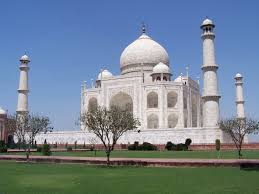 1D/0N
1D/0N
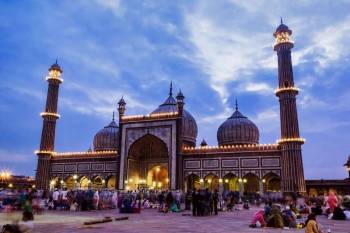 2D/1N
2D/1N
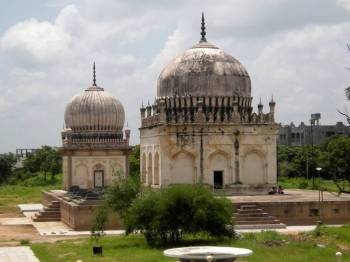 2D/1N
2D/1N
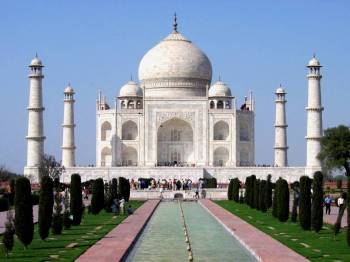 3D/2N
3D/2N
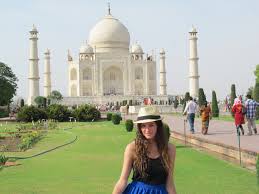 2D/1N
2D/1N
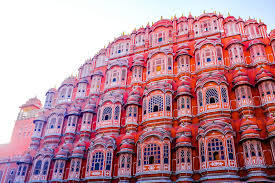 4D/3N
4D/3N
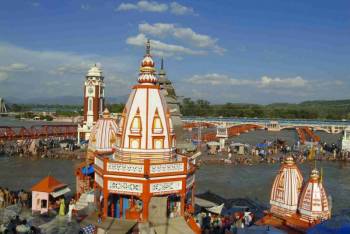 3D/2N
3D/2N
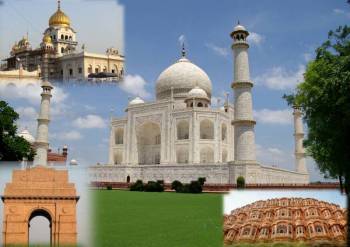 4D/3N
4D/3N
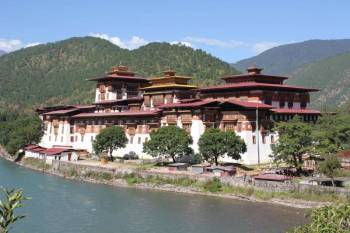 8D/7N
8D/7N
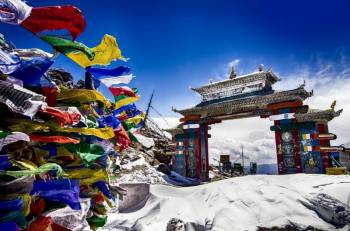 13D/12N
13D/12N
Guwahati - Shillong - Tawang - Cherrapunji - Bomdila - Golaghat - Mandla
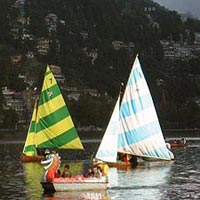 13D/12N
13D/12N
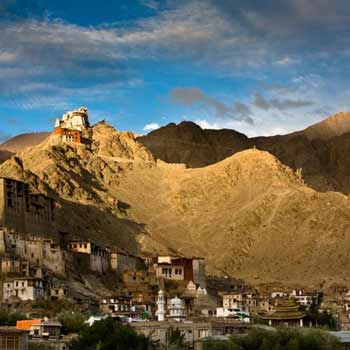 13D/12N
13D/12N
12 Night / 13 Days Haven Himachal Family..
Shimla - Sangla - Kalpa - Kinnaur - Manali - Dharamshala - Dalhousie - Amritsar
 13D/12N
13D/12N
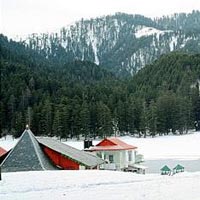 13D/12N
13D/12N
Shimla - Kulu - Manali - Dharmshala - Da..
Shimla - Manali - Dalhousie - Amritsar - Dharamshala - Kulu
 13D/12N
13D/12N
Rajasthan 12 Nights 13 Days Tour
Bikaner - Jaisalmer - Jodhpur - Mount Abu - Chittorgarh - Pushkar - Jaipur - Udaipur
 13D/12N
13D/12N
Agra - Jaipur - Jodhpur - Jaisalmer - New Delhi - Udaipur
 13D/12N
13D/12N
Golden Triangle Tour with Khajuraho
New Delhi - Jaipur - Fatehpur Sikri - Agra - Jhansi - Orchha - Khajuraho - Varanasi
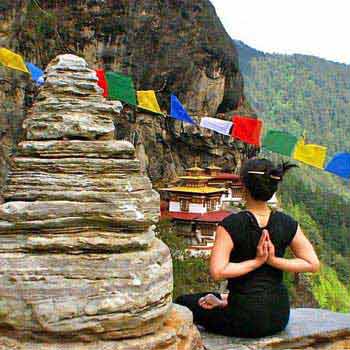 13D/12N
13D/12N
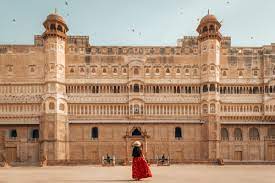 13D/12N
13D/12N
Rajasthan Tour Package 12 Night - 13 Days
Ajmer - Bikaner - Jaipur - Jaisalmer - Jodhpur - Mount Abu - Pushkar - Udaipur
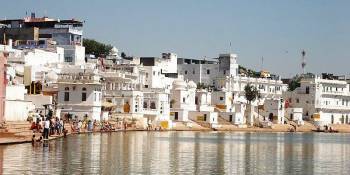 13D/12N
13D/12N
12 Nights Rajasthan Package From Jaipur
Ajmer - Bikaner - Jaipur - Jaisalmer - Jodhpur - Mount Abu - Pushkar - Udaipur
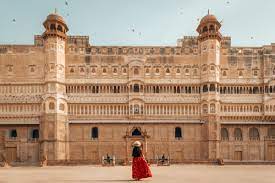 13D/12N
13D/12N
Rajasthan Tour Package 12 Night - 13 Days
Ajmer - Bikaner - Jaipur - Jaisalmer - Jodhpur - Mount Abu - Pushkar - Udaipur
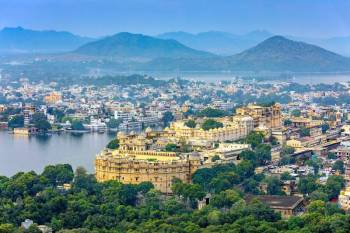 12D/11N
12D/11N
11 Nights 12 Days - Delhi Agra Rajasthan
New Delhi - Mathura - Agra - Jaipur - Ajmer - Pushkar - Udaipur - Mount Abu - Ranak..
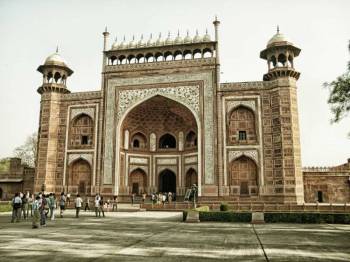 11D/10N
11D/10N
10 Nights Uttar Pradesh Tour Package Fro..
New Delhi - Agra - Prayagraj - Lucknow - Mathura - Varanasi - Ayodhya - Vrindavan -..
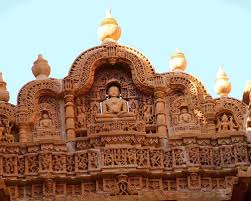 10D/9N
10D/9N
9 Night - 10 Days Rajasthan Tour Package
Ajmer - Jaipur - Jaisalmer - Jodhpur - Mount Abu - Udaipur
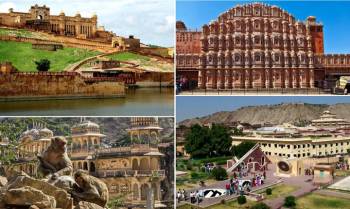 10D/9N
10D/9N
Ajmer - Udaipur - Mount Abu - Jodhpur - ..
Ajmer - Jaisalmer - Jodhpur - Mount Abu - Udaipur - Jaipur
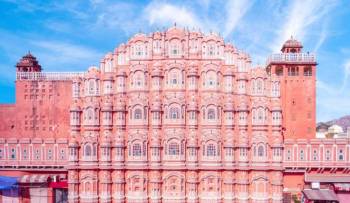 9D/8N
9D/8N
9 Days Jaipur - Ajmer - Udaipur - Mount ..
Ajmer - Jaipur - Jaisalmer - Jodhpur - Mount Abu - Udaipur
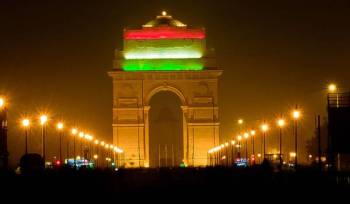 5D/4N
5D/4N
Delhi - Mathura - Vrindavan - Agra Tour ..
New Delhi - Agra - Mathura - Vrindavan